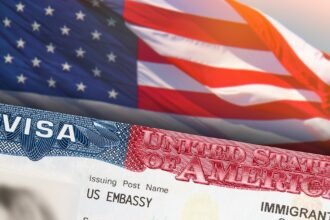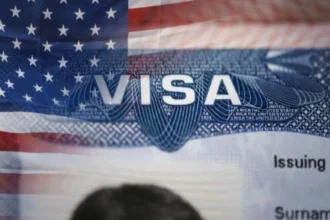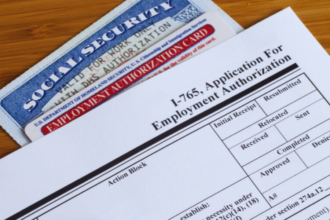The U.S. U Nonimmigrant Visa (commonly referred to as the U Visa) is designed to protect victims of certain crimes who have suffered mental or physical abuse and are willing to assist law enforcement in the investigation or prosecution of criminal activities. For Nigerians who find themselves in vulnerable situations in the U.S., the U Visa offers a pathway to safety, justice, and eventual stability, including work authorization and the possibility of permanent residency.
This comprehensive guide delves into the U Visa, its eligibility requirements, application process, and benefits, providing essential information for Nigerian nationals who may qualify for this critical protection.
What Is the U Visa?
The U Visa is a temporary immigration benefit established under the Victims of Trafficking and Violence Protection Act of 2000. Its primary purpose is to:
- Protect victims of qualifying crimes.
- Encourage victims to report crimes and cooperate with law enforcement.
- Provide victims with the ability to remain in the U.S. while helping authorities.
The U Visa is particularly beneficial for individuals who may not have legal immigration status but have been victims of crimes such as human trafficking, domestic violence, or sexual assault.
Eligibility Criteria for the U Visa
To qualify for a U Visa, Nigerian applicants must meet specific criteria. These include:
1. Victim of a Qualifying Crime
Applicants must be victims of certain crimes that resulted in substantial mental or physical abuse. Qualifying crimes include:
- Human trafficking.
- Domestic violence.
- Sexual assault.
- Kidnapping.
- Extortion.
- Blackmail.
- Witness tampering.
- Murder or manslaughter.
- Other related crimes.
Important: The crime must have occurred in the U.S. or violated U.S. laws.
2. Substantial Harm
The applicant must provide evidence of significant physical or psychological harm caused by the crime. This can include medical reports, psychological evaluations, or affidavits from professionals.
3. Cooperation with Law Enforcement
Applicants must demonstrate that they are cooperating, or are willing to cooperate, with law enforcement or government officials in the investigation or prosecution of the crime.
4. Admissibility
Applicants must meet the general admissibility requirements for U.S. visas. However, the U Visa allows waivers for certain grounds of inadmissibility, such as previous immigration violations.
Benefits of the U Visa
The U Visa offers several benefits to eligible applicants, including:
1. Temporary Legal Status
U Visa holders can remain in the U.S. for up to four years, with the possibility of extensions under certain circumstances.
2. Work Authorization
Recipients automatically receive work authorization, allowing them to seek employment and achieve financial independence.
3. Pathway to Permanent Residency
After three years of continuous presence in the U.S. with a U Visa, holders may apply for a green card (lawful permanent residency).
4. Derivative Visas for Family Members
Certain family members, such as spouses, children, parents, and unmarried siblings, may qualify for derivative U Visas.
5. Access to Services
U Visa holders may access public benefits, including healthcare and counseling services, to support recovery and integration.
Steps to Apply for the U Visa
Applying for a U Visa involves multiple steps, each requiring detailed documentation and careful preparation.
Step 1: Complete Form I-918
The primary application for the U Visa is the Form I-918, Petition for U Nonimmigrant Status. This form collects information about the applicant, the qualifying crime, and the resulting harm.
- Filing Fee: There is no filing fee for the Form I-918.
Step 2: Obtain Law Enforcement Certification (Form I-918, Supplement B)
Applicants must submit Form I-918, Supplement B, completed by a law enforcement official. This certification confirms:
- The applicant was a victim of a qualifying crime.
- The applicant is, was, or is likely to be helpful in the investigation or prosecution of the crime.
Tip: Work with the police department, prosecutors, or other agencies to secure this certification.
Step 3: Submit Evidence of Harm
Provide documentation showing substantial harm caused by the crime. Evidence may include:
- Medical reports.
- Psychological evaluations.
- Personal affidavits describing the harm experienced.
Step 4: Submit Form I-192 for Waivers
If the applicant is inadmissible due to past immigration violations or other grounds, they must file Form I-192, Application for Advance Permission to Enter as a Nonimmigrant, to request a waiver.
Step 5: File the Application
Submit all forms, supporting documents, and evidence to the appropriate U.S. Citizenship and Immigration Services (USCIS) address.
Step 6: Biometric Appointment
Applicants will be required to attend a biometric appointment for fingerprinting and background checks.
Step 7: Wait for a Decision
Processing times for U Visa applications can be lengthy, often exceeding four years. During this period, applicants may qualify for Deferred Action, which allows temporary work authorization while the application is pending.
Challenges Nigerian Applicants May Face
1. Lengthy Processing Times
Due to high demand, U Visa processing can take several years. Applicants must plan accordingly and explore interim relief options, such as Deferred Action.
2. Difficulty Securing Law Enforcement Certification
Obtaining Form I-918, Supplement B, can be challenging if law enforcement agencies are uncooperative. Applicants should seek assistance from attorneys or advocacy organizations.
3. Evidence Requirements
Providing sufficient evidence of harm and cooperation can be demanding, particularly if records or documents are unavailable.
Tip: Work with legal experts to gather and present comprehensive evidence.
Tips for Nigerian Applicants
1. Seek Legal Assistance
U Visa applications are complex and benefit from professional guidance. Immigration attorneys or nonprofit organizations specializing in immigrant rights can provide valuable support.
2. Maintain Communication with Law Enforcement
Establish a positive relationship with the investigating agency to ensure cooperation and support throughout the application process.
3. Document Everything
Keep detailed records of the crime, interactions with law enforcement, and any medical or psychological treatment received.
Resources for Nigerian Applicants
- U.S. Citizenship and Immigration Services (USCIS): Visit the official USCIS page on U Visas for detailed information.
- National Immigration Law Center (NILC): Offers resources and advocacy for immigrants (nilc.org).
- Legal Aid Organizations: Search for local nonprofits providing free or low-cost legal assistance.
Family Members and Derivative U Visas
U Visa holders may petition for qualifying family members to join them in the U.S. This includes:
- Spouses.
- Unmarried children under 21.
- Parents (if the principal applicant is under 21).
- Unmarried siblings (if the principal applicant is under 21).
To petition for family members, applicants must file Form I-918, Supplement A.
Conclusion
The U.S. U Visa provides a lifeline for Nigerian victims of crimes, offering protection, legal status, and the chance to rebuild their lives. While the process can be challenging, understanding the requirements, gathering strong evidence, and seeking legal guidance can significantly improve the likelihood of success.
For more information, visit the USCIS U Visa page, or consult with trusted immigration attorneys or advocacy organizations to navigate the application process confidently. With the right approach, the U Visa can open doors to safety, justice, and new opportunities in the United States.



